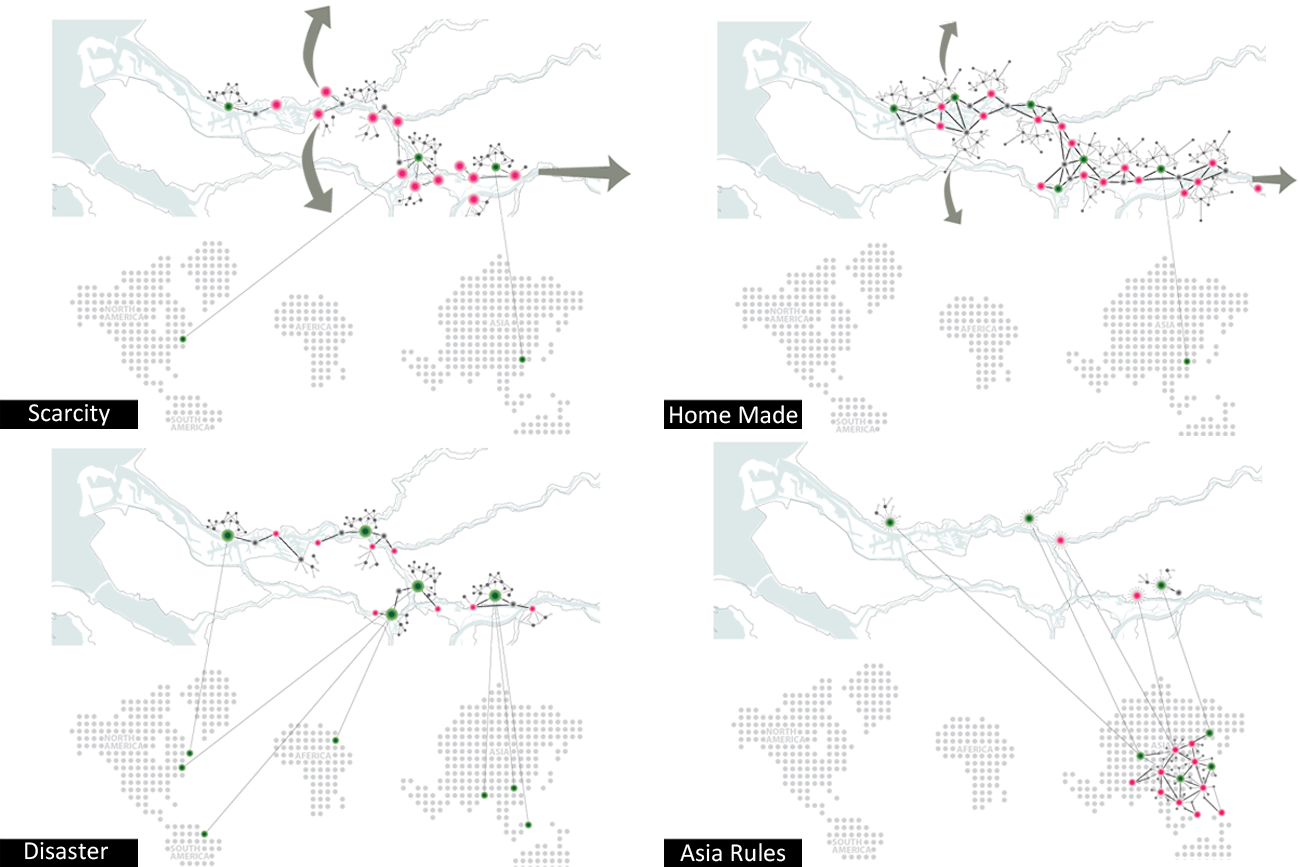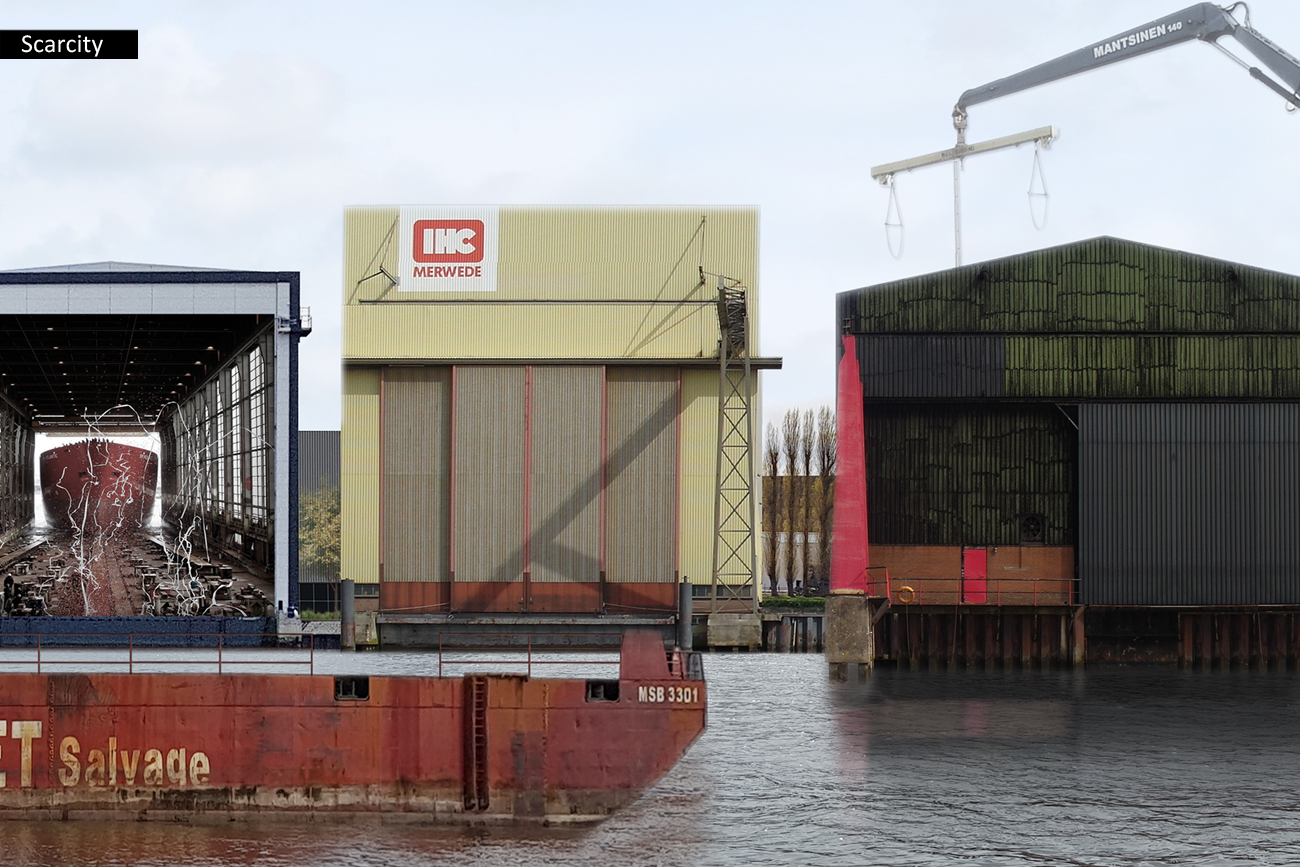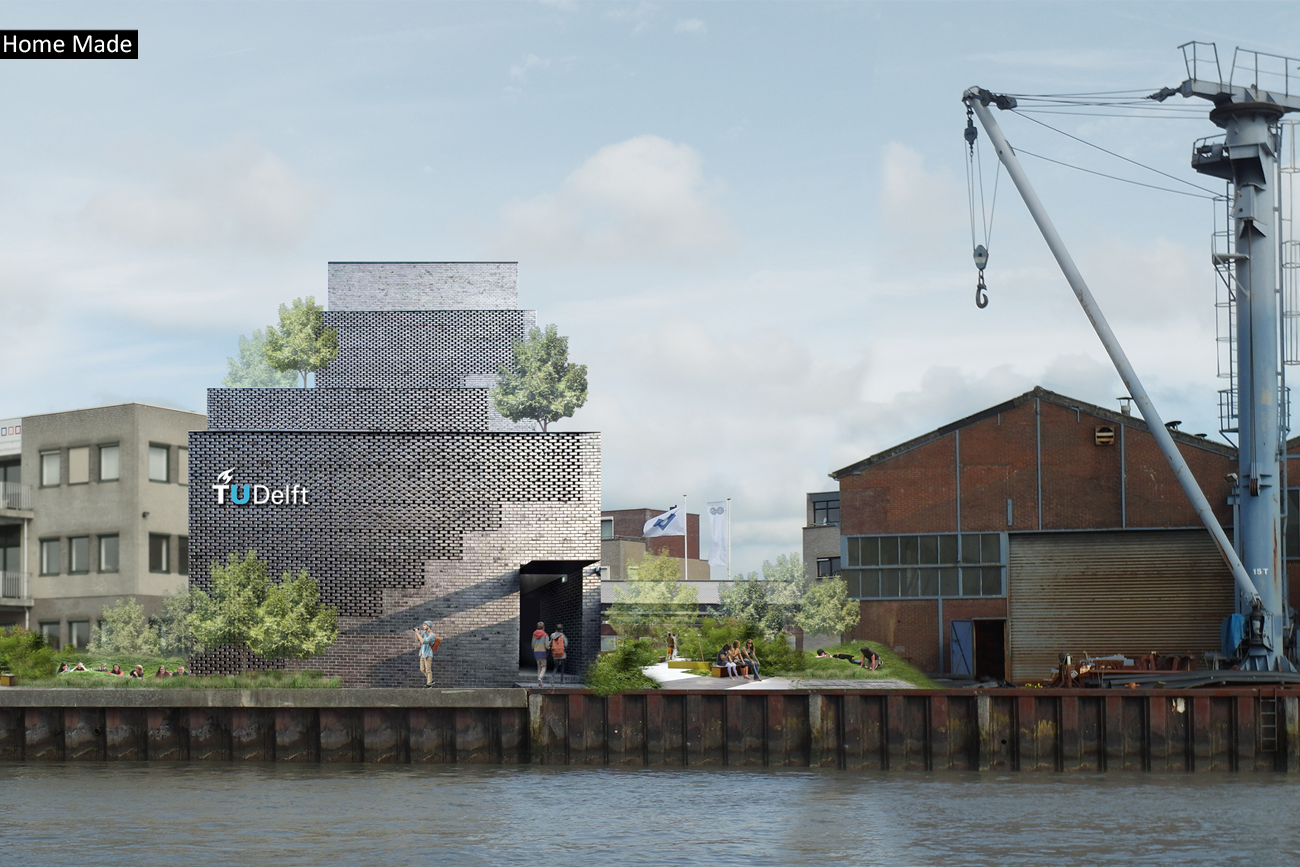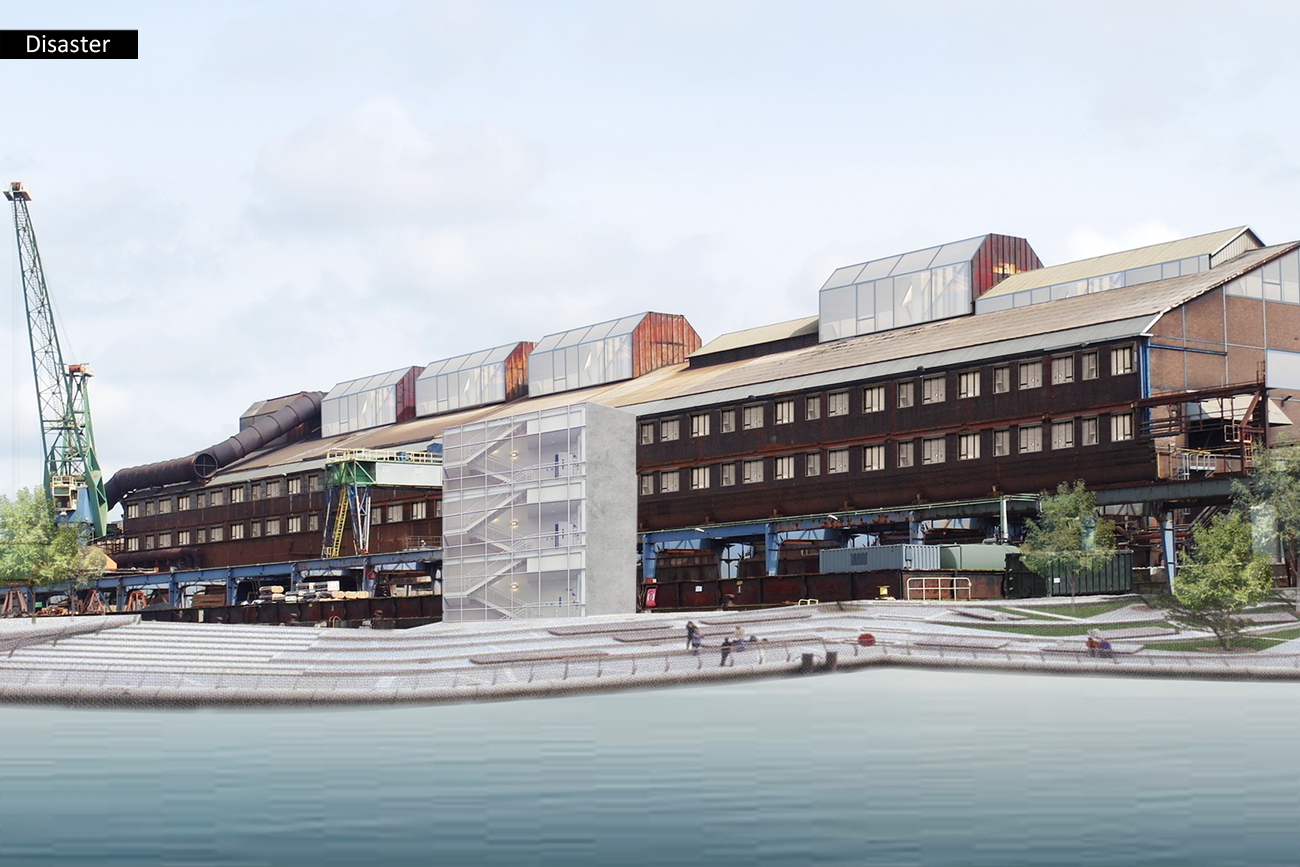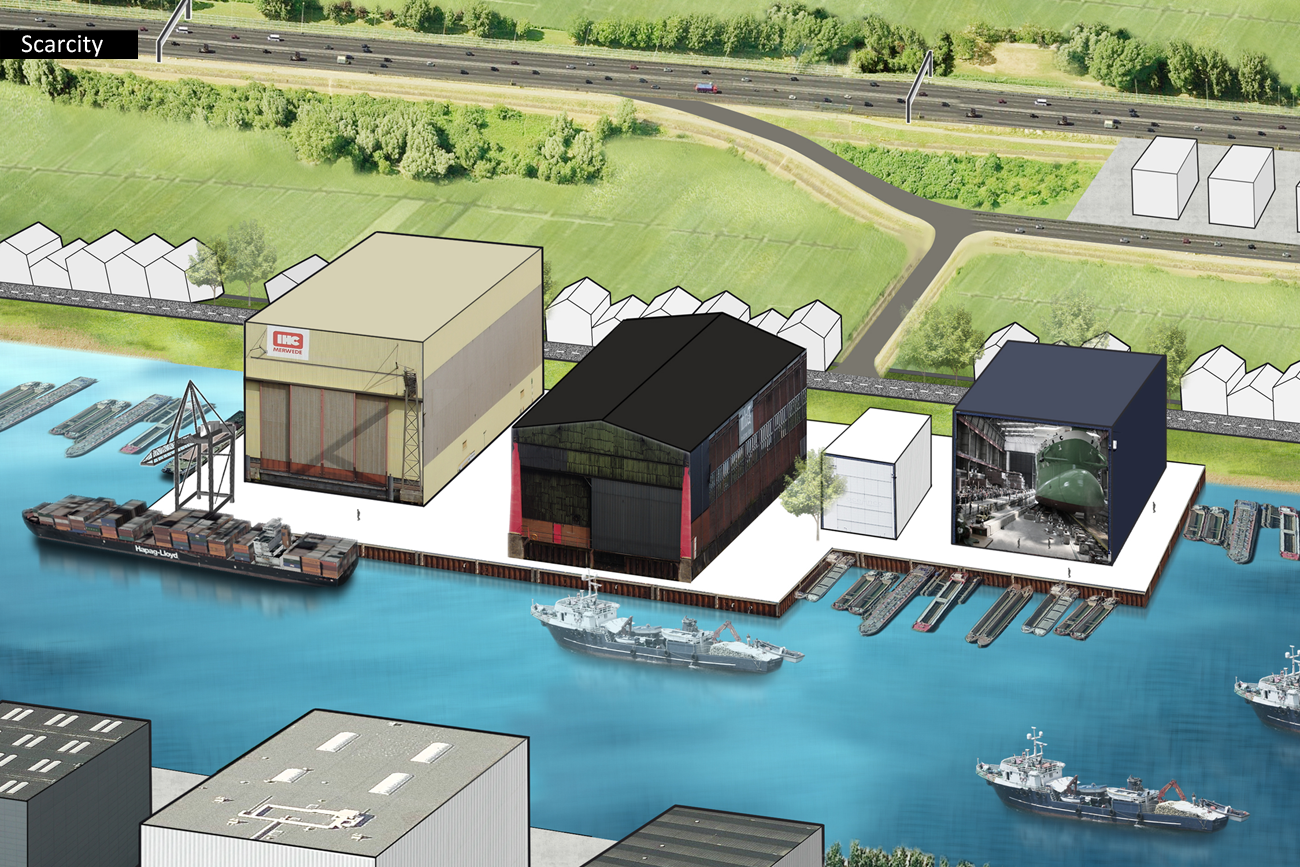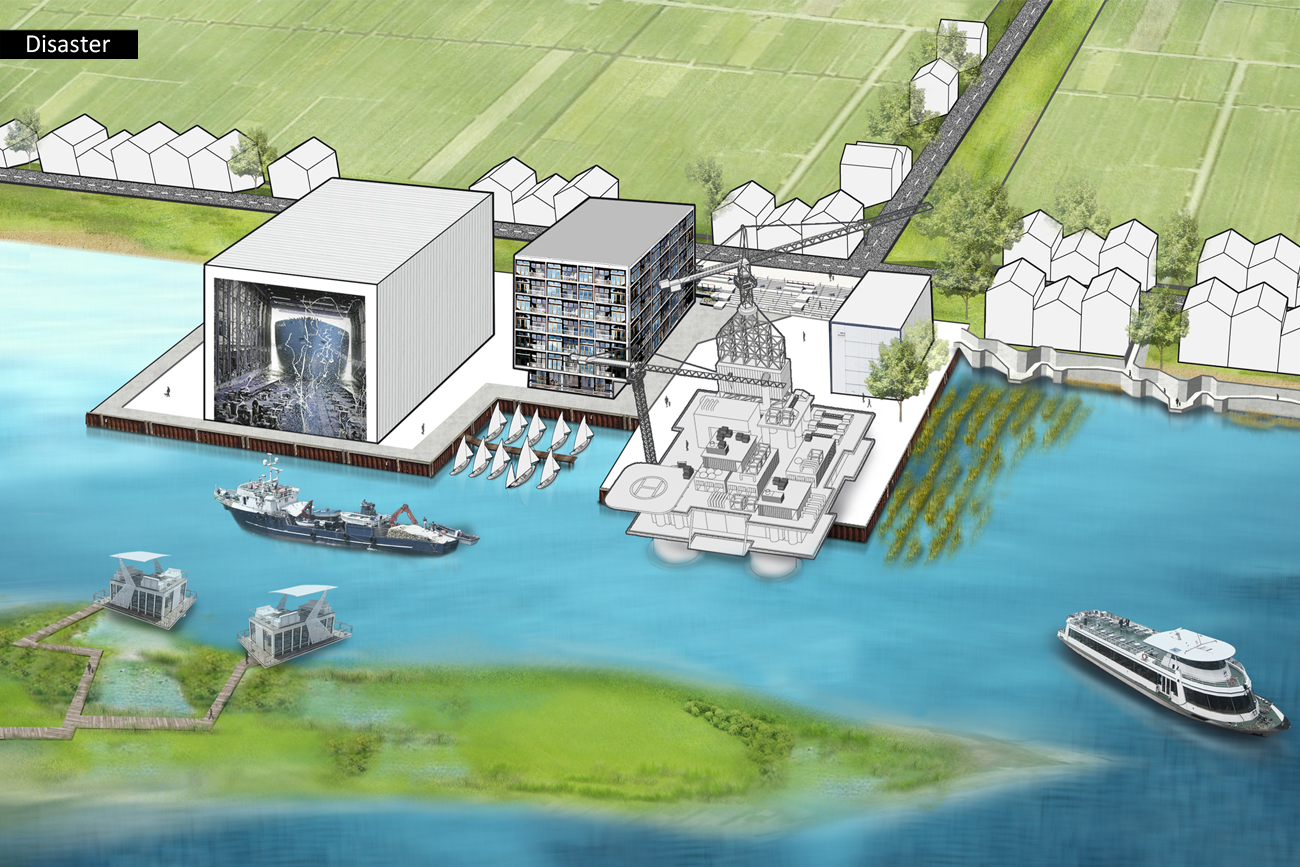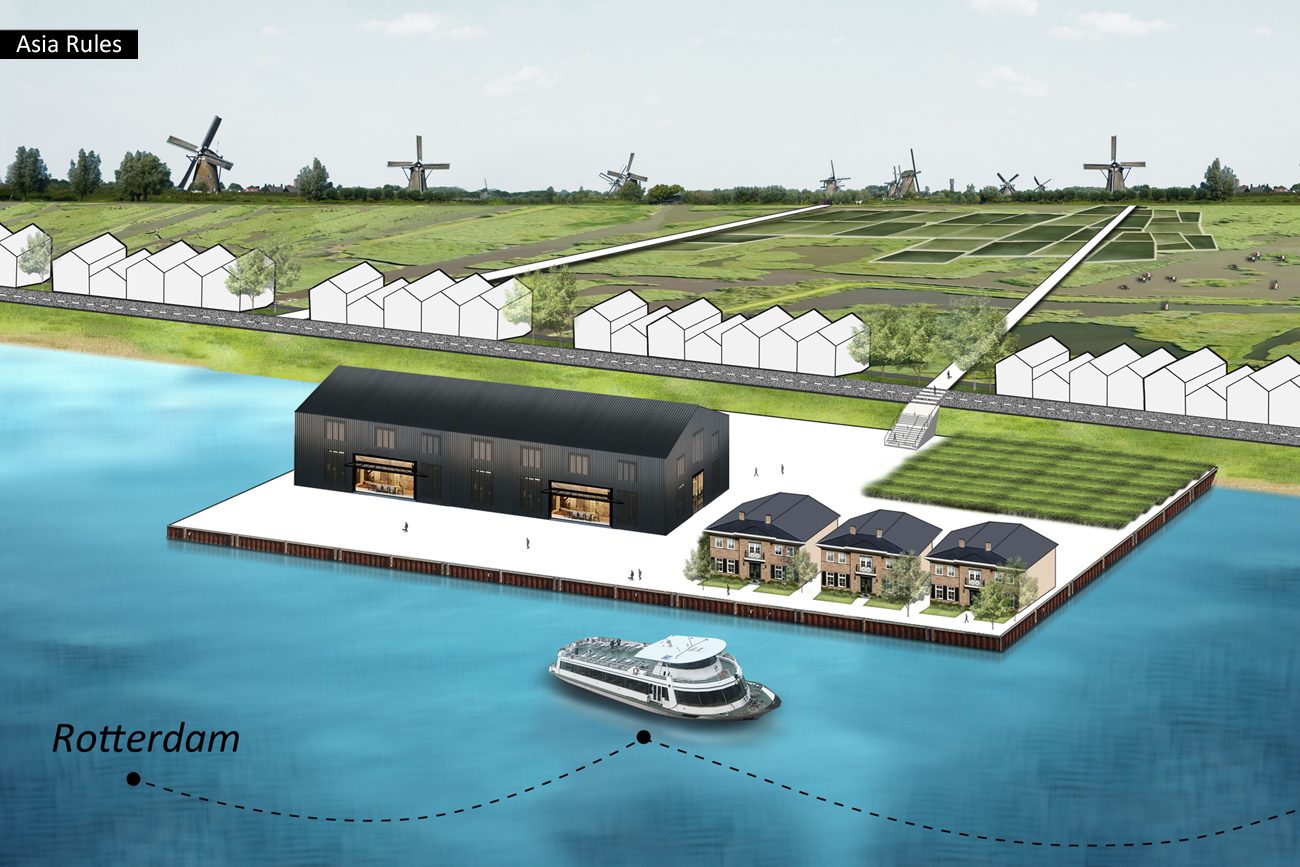Werkendam, Alblasserwaard-Vijfheerenlanden
Marine Cluster
Research by design exploring the impact of different economic scenario’s for the maritime
cluster in the Alblasserwaard-Vijfheerenlanden region
The Maritime Cluster is an important and stable part of the Dutch GDP. The cluster is, however, heavily affected by several international trends and changes. Therefore, its continued success is related to future scenario’s. The Province of South Holland, MRDH, and the involved municipalities initiated a study that explores the future of the cluster. On basis of four economical and political scenarios developed by Erasmus University. Research-by-design is deployed to explore the spatial impacts and opportunities of the cluster.
The scenario’s, varying from a future in which international trade comes to a standstill (the Home Made Scenario) to a scenario in which China becomes world leader (the Asia Rules Scenario), will influence the sector in their own ways. Within the scenario’s, not only spatial demand and employment fluctuates, also the modes of cooperation and company profiling vary.
Using research-by-design, Defacto explored the opportunities and threats of these four scenario’s for the maritime activities in the region Alblasserwaard-Vijfheerenlanden and the Municipality of Werkendam. Strategic policy directions could contribute to a robust future of the industry. For example, by investing in education or innovative flood risk engineering showcases. Or by securing sufficient space for potential expansion or transforming brownfields inro creative hotspots or touristic gateways.
Client: The Province of Zuid Holland, Metropolitan region Rotterdam The Hague (MRDH), Municipality of Rotterdam, regions of Drechtsteden and Alblasserwaard-Vijfheerenlanden
In cooperation with: Ubbels & Langerak, Atelier NOU, Vereniging Deltametropool, Mauro Parravicini
Het Maritieme Cluster is een belangrijk en stabiel onderdeel van de Nederlandse economie. Het cluster wordt echter beïnvloed door verschillende internationale trends en veranderingen. Dat maakt dat het succes van het cluster afhankelijk is van toekomstscenario’s. Om meer inzicht te verkrijgen in de toekomst van het cluster zijn de Provincie Zuid Holland, MRDH, en de betrokken gemeenten een toekomstverkenning begonnen. Op basis van vier politiek-economische scenario’s (Disaster, Asia Rules, Home Made, en International Conflict), ontwikkeld door de Erasmus Universiteit, zijn de ruimtelijke impact en kansen van het cluster ontwerpend verkend.
De verschillende scenario’s, variërend van een toekomst waarin internationale handel stilvalt (Home Made) tot een situatie waarin China wereldleider wordt (Asia Rules), hebben ieder hun eigen impact op het cluster. Binnen de scenario’s variëren niet alleen de ruimtevraag en de hoeveelheid werkplekken van de bedrijven binnen het cluster, maar ook de manier van samenwerken en profileren.
Defacto heeft middels ontwerpend onderzoek de kansen en bedreigingen van de vier scenario’s voor de regio Alblasserwaard-Vijfheerenlanden en Werkendam verkend. Door strategische beleidskeuzen kan worden voorgesorteerd op een robuuste toekomst voor het gebied. Bijvoorbeeld door te investeren in onderwijs en innovatieve showcases voor de waterbouw. Of door voldoende ruimte beschikbaar te stellen voor potentiële groei of juist voor transformaties van leegkomende industrieterreinen tot innovatieve broedplaatsen of recreatiepoorten.
Opdrachtgever: Provincie Zuid-Holland, Metropoolregio Rotterdam Den Haag, Gemeente Rotterdam, Regio Drechtsteden en Regio Alblasserwaard-Vijfheerenlanden
In samenwerking met: Ubbels & Langerak, Atelier NOU, Vereniging Deltametropool, Mauro Parravicini

